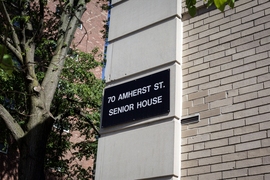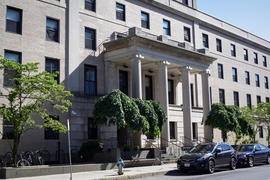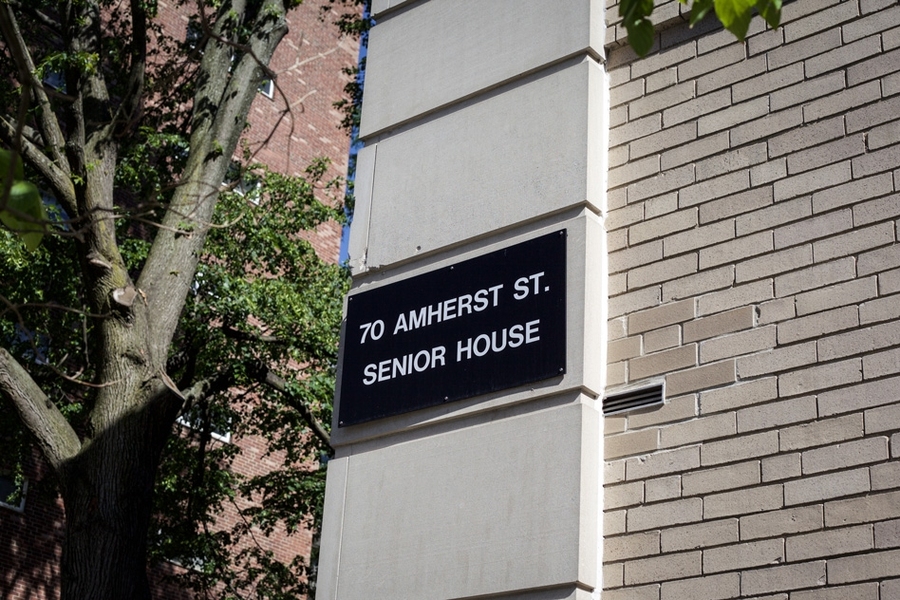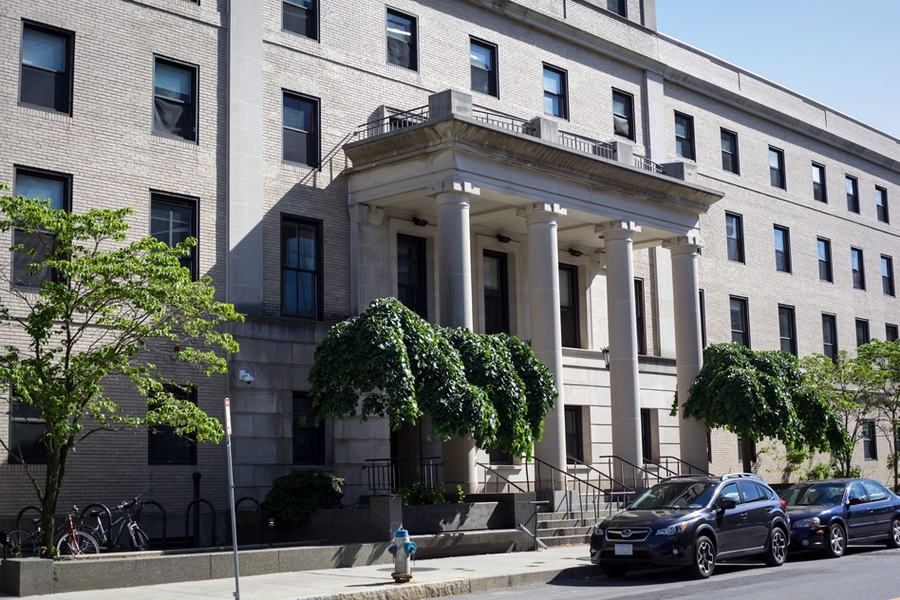Responding to data indicating a low graduation rate among residents of Senior House, the Institute’s senior academic officers today notified Senior House residents about steps they are taking to enhance academic success at that residence. They invited Senior House residents to work with the administration to find solutions to improve the success rate for their community.
The administration’s actions center on establishing stronger in-residence support systems. In addition, no first-year students will be placed in Senior House during the 2016-2017 academic year.
The data
For members of the MIT classes of 2008 to 2015 living in Senior House, the four-year graduation rate is 59.7 percent, compared to 83.7 percent for all MIT undergraduates. Of all the students in the MIT classes of 2008 to 2015 living in Senior House, 21.1 percent have not graduated, compared to 7.7 percent across all MIT undergraduates.
“As MIT’s senior leaders, we take seriously our responsibility to you. Our job is to provide every MIT student an excellent education and a healthy residential experience,” President L. Rafael Reif, Chancellor Cynthia Barnhart, Provost Martin Schmidt, and Vice President for Research Maria Zuber wrote to the Senior House community. “To be clear, many students in Senior House are doing well, but we know that many are not.”
MIT’s 83.7 percent overall four-year graduation rate is in line with the ranges reported by peer institutions. But Senior House’s graduation data stand out sharply from that for the entire MIT undergraduate residential system, which was released today to the MIT community.
“We see a vital need to act based on these data alone,” the senior officers added in their letter. “However, the seriousness of the situation is further underscored by our significant concerns about issues of illegal drug use in Senior House.”
The path forward
Writing that they “thought hard about the best immediate course of action,” the senior officers informed Senior House students of the following steps they are taking:
- In September, Senior House will reopen with an enhanced house team, additional live-in staff, and new student support services.
- Barnhart will appoint, and chair, a turnaround team of faculty, Senior House students, and staff who will work closely with the Senior House community to find and implement solutions and determine appropriate ways to measure Senior House’s progress toward becoming a healthier community.
- No first-year students will be placed in Senior House in the 2016-2017 academic year.
The senior officers asked Senior House students to work with them and the entire MIT community “to create in Senior House a healthy, supportive learning and living environment that fosters the best aspects of Senior House culture.” As examples of the positive aspects of the Senior House culture that should be sustained and enhanced, they cited that more than three-quarters of Senior House residents consistently say that artistic expression and creative work is very important or essential to them, and that Senior House residents are known for being very supportive of each other.
Barnhart, Head of House Jay Scheib, and other leaders will be meeting with Senior House students to discuss ways to build on the constructive characteristics of Senior House and how the administration will implement the enhancements to the in-residence support systems.
Following the news of the action steps for Senior House and the simultaneous release of campus-wide graduation data, several heads of houses wrote to their respective residence halls to voice their support for the administration’s decisions.
They noted that Barnhart discussed the data and the administration’s action plan with them and that responding in this way — with enhanced supports and sustained dialogue — will help Senior House students and the larger MIT community.
Chair of the Faculty Krishna Rajagopal also supported today’s decisions in a letter to MIT faculty. “I, my fellow Faculty Officers, and in fact every faculty member with whom I have been able to discuss this matter, support the steps that MIT is taking today: the Institute has a responsibility to house students in healthy environments that optimize learning,” Rajagopal wrote.
Referring to the action plan that Barnhart and a team of students, faculty, and staff will be developing, he added that “by taking a hard look at data about ourselves, by engaging within our community, and then by crafting achievable goals, I am confident that we will honor MIT’s time-tested tradition of solving difficult problems together.”









